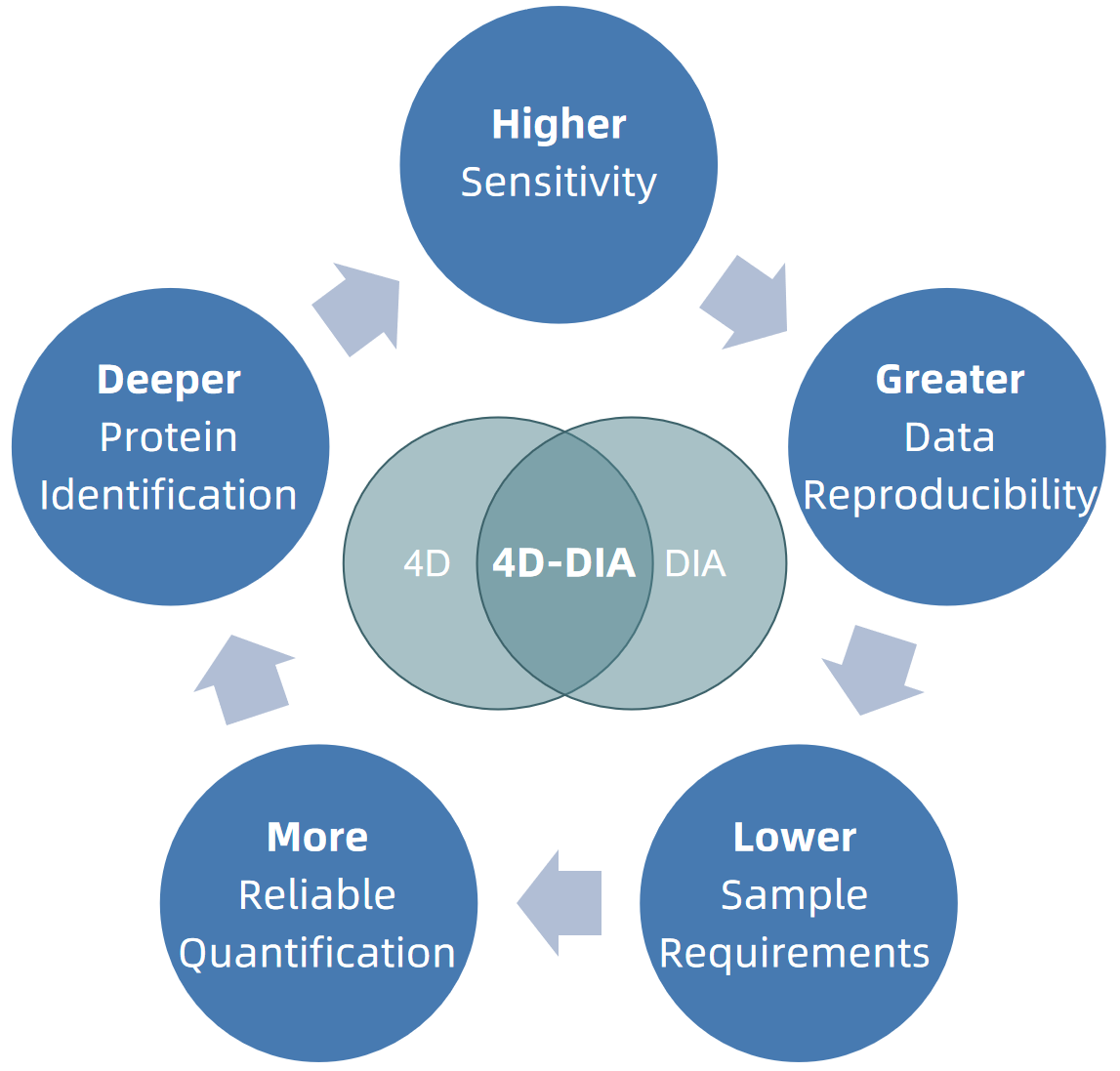4D-DIA Quantitative Proteomics Service
4D-DIA quantitative proteomics is an emerging high-throughput mass spectrometry technology that combines data-independent acquisition (DIA) strategies with four-dimensional (4D) separation techniques. It involves digesting protein into peptide by protease and separating peptide by liquid chromatography (LC), followed by mass spectrometry (MS) for detection and identification of peptide. It enables high-throughput and high-sensitivity quantitative analysis of proteins in biological samples. 4D-DIA is widely used in fields such as biomedicine research, disease diagnosis, and drug development. Its in-depth analysis of proteome helps reveal biological process, discover potential biomarker, and study drug targets to promote scientific research and clinical applications.

Analysis Workflow
1. Sample Preparation
Proteins extraction from biological samples, followed by purification and concentration.
2. Protein Digestion
Protein digestion with enzymes (such as trypsin) to produce peptides.
3. Peptide Separation
Peptides separation by high-performance liquid chromatography (HPLC).
4. Mass Spectrometry Analysis
4D-DIA analysis of separated peptides by mass spectrometer, including their retention time (RT), mass-to-charge ratio (m/z), ion intensity, and ion mobility, followed by mass spectrometry data collection and mass spectrum match.
5. Data Processing and Quantitative Analysis
Identification of peptide and quantification of protein by searching for mass spectrometry databases.
Service Advantages
1. High Throughput
4D-DIA technology can analyze a large number of samples simultaneously, significantly reducing experimental cycle and improving experimental efficiency.
2. High Accuracy
4D-DIA technology uses high-sensitivity, high-resolution mass spectrometers for protein quantification, offering high accuracy and reliability and avoiding error and omission.
3. Comprehensive Coverage
4D-DIA technology can analyze almost all proteins in samples, not just specific ones.
4. Data Reproducibility
The data generated by 4D-DIA technology have high repeatability and reproducibility, ensuring the stability and credibility of experimental results.
Applications
1. Functional Proteomics Research
Exploration of the structure, function, and interactions of proteins\, providing a critical theoretical foundation for biological science.
2. Protein Modification Research
Modifications of protein can affect its function and regulatory roles. 4D-DIA quantitative proteomics is used to study various types of protein modifications, such as protein phosphorylation, protein acetylation, protein methylation, etc.
3. Disease Biomarker Identification
Identification of potential disease biomarkers by comparing pathological samples with normal samples, enhancing the accuracy of early diagnosis and efficacy of disease treatment.
4. New Drug Development
In-depth research on the mechanisms of drug action to develope more targeted medications and offer personalized treatments.
Sample Submission Requirements
We accept a variety of samples, including cell samples, tissue samples, body fluid samples (such as serum, plasma, urine, saliva, etc.), and microorganism samples (such as bacteria, viruses, fungi, etc.). For further details, please contact our technical team.
Deliverables
1. Experimental Procedures
2. Relevant Mass Spectrometry Parameters
3. Detailed Information on 4D-DIA Quantitative Proteomics
4. Mass Spectrometry Images
5. Raw Data
How to order?







